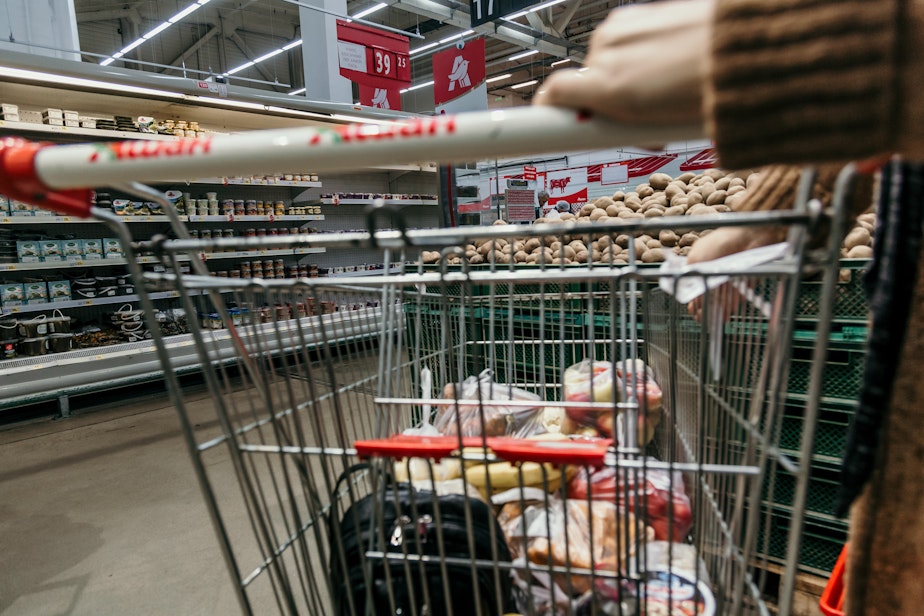Panic-buying, empty shelves create hardships for people on food assistance programs

Empty store shelves due to panic-buying causes an inconvenience for most people. But it can be an even bigger hassle for families on food assistance.
Grocery shopping has been stressful for the past several weeks for Felicia Washington. She relies on two food assistance programs to feed her two grandchildren and her great grandchild.
“What little I have, like $174,” Washington said. “So the stuff that I was getting on WIC vouchers I had to pay for it.”
That’s because her vouchers expired. WIC, or Women, Infants, and Children is a federal nutrition program. The appointment to get her vouchers renewed was cancelled because of coronavirus concerns.
When store shelves are empty like they have been, food choices — especially those for WIC recipients — are limited. The program serves 195,000 women and babies in Washington state.
Baby food and products are in high demand as families continue to stay home during the coronavirus outbreak.
Sponsored
At Rainier Valley Food Bank, coordinator James Johnson-Gruspe said it’s been hard to keep shelves stocked.
“Baby formula is number one, diapers size three and up are in high demand, as well as things like baby cereal, baby oatmeal, baby jarred food.”
Johnson-Gruspe said that normally donated baby items last them a few weeks. But given the high demand, now those donations last only a few days.
Rainier Valley Food Bank has switched to a weekly home delivery system until it’s safe for people to be outside.




